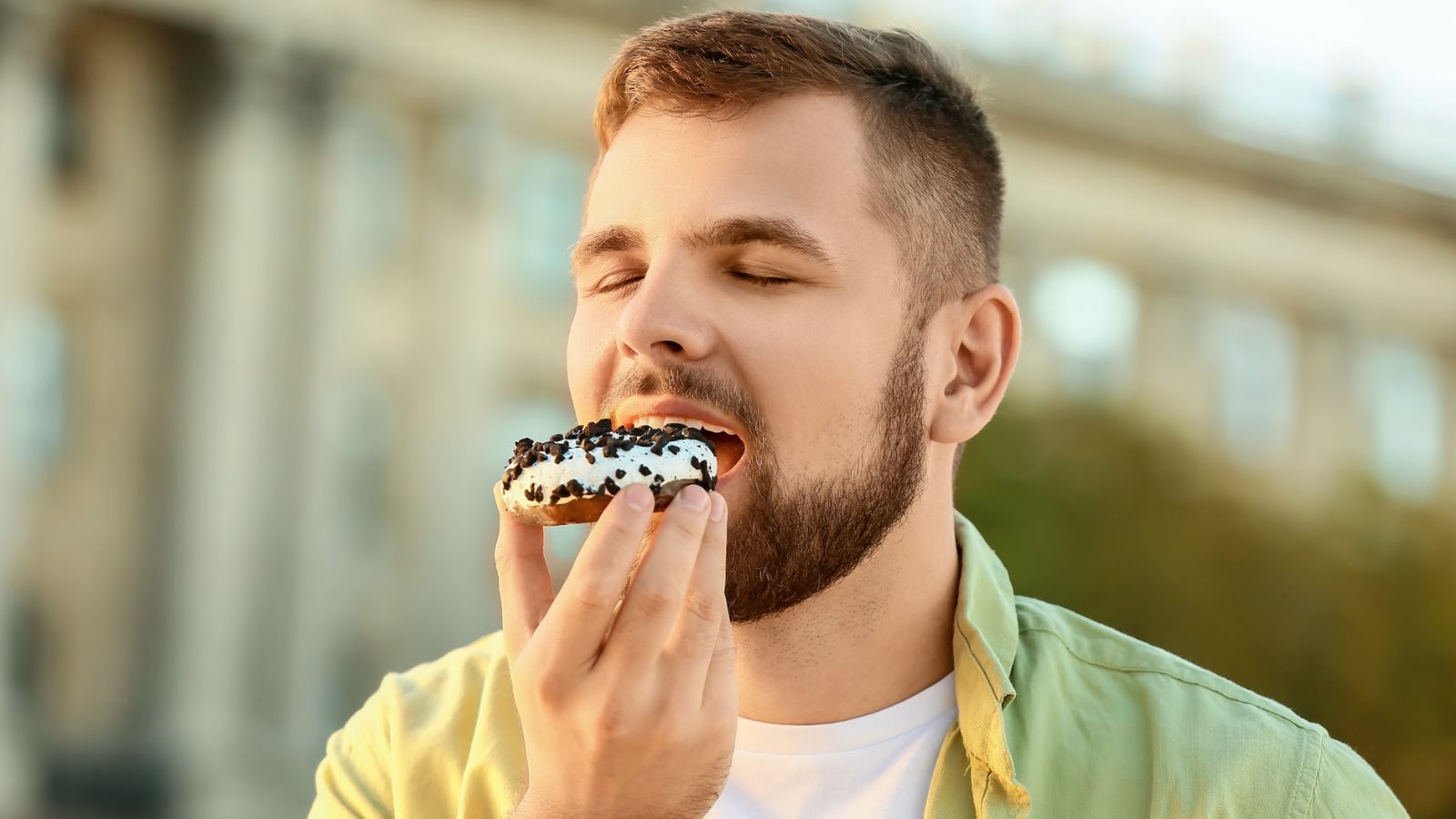Food cravings are something most of us have experienced, often driving us to seek out certain foods with a strong urge. These cravings can stem from various causes, including physical needs or emotional triggers. However, gaining insight into the reasons behind these cravings and learning strategies to manage them can play a crucial role in maintaining a balanced diet and promoting overall well-being, something that we will look into in this article.
Lack of Sleep

Lack of sleep may affect hunger-regulating hormones, which can lead to eating more food more often. Inadequate sleep can also affect the way you think and the likelihood of grabbing quick/convenience foods and caffeine to “push through” or because you’re too tired to make a healthy meal. Making sure to get enough sleep each night will help control bandaid foods.
Dehydration

If you’re not craving anything in particular, it could be a sign you’re just thirsty. Medical News Today says, “Nonselective hunger is the desire to eat anything. It may be the result of real hunger and hunger pangs, but it can also be a sign of thirst.” Making sure to drink water regularly throughout the day can keep you hydrated and away from snacks.
Stress

When we are stressed out, it is common to crave foods that give us a sense of comfort, or reach for junk because it is easy and mindless. Instead of eating as a way to alleviate stress, try deep breathing, yoga, or going for a run—maybe even screaming into a pillow if that helps.
Habit

Meeting friends out for brunch or happy hour may have you wanting to eat bar snacks. Associating specific foods with different situations can lead to craving those foods even when you don’t really need them. Break the cycle by creating new, healthier habits.
Restrictive Diets

Trying to get healthier can lead a lot of people down the dangerous road of overly restrictive diets. The problem with these diets is that when we tell ourselves we absolutely can’t have something, we start to crave the forbidden. When trying to be healthier in your eating habits, create a realistic plan you can stick with, like a balanced diet that allows for occasional treats.
Social Influences

You’re trying to eat healthier, but your friends are pizza, burgers, and beer people. Seeing others eat certain foods or being in social settings can spark cravings. If you know you’ll be around people with a different diet plan than you, it’s okay to plan ahead to make sure you do what is best for you, whether it’s eating beforehand or choosing the salad instead.
Physical Activity

Craving salty foods may be a sign of dehydration and a need for replenishing electrolytes. Intense or prolonged exercise can increase cravings, especially for salty foods, because of this electrolyte deficiency. This is why many sports drinks are high in sodium. Instead of undoing your hard work with a bag of crisps, drink some coconut water and replenish with balanced meals and snacks.
Environmental Cues

Advertisers know what they’re doing; it is no accident that they put chocolate bar and coffee adverts during your midday slump. Seeing a food, especially multiple times in a row, can subconsciously get in your head and make you want it. To fight the ad men, limit exposure to food advertising and keep healthy snacks on hand.
Not Eating in the Morning

Your body craves sugar when you don’t consume enough calories, according to Kaiser Permanente. When you don’t start your day by nourishing your body, it will try to make up for the lack of energy by craving a quick boost, like sugar. To beat these cravings, have a balanced breakfast that is high in protein and complex carbohydrates.
Gut Microbiome

The microbiome in your gut is not only controlled by what you eat but can also tell your body what nutrients it is missing through cravings. “What the bacteria do for appetite is kind of like optimizing how long a car can run without needing to add more [gasoline] to the tank,” says senior author Carlos Ribeiro in Scientific American. To keep your microbiome singing a healthy tune, consume a diet rich in fiber and probiotics.
Memory and Association

We all love foods that evoke special memories for us, whether that was baking cookies with a parent or going out with your first love for burgers and milkshakes. Positive memories associated with certain foods can trigger cravings when those memories pop up or we are missing those feelings. If you want to calm the comfort foods, create new, positive experiences with healthier food choices.
Leptin Resistance

Leptin resistance results in a decrease in the ability of leptin to suppress appetite or increase your body’s energy use. The main symptoms of leptin resistance are constantly feeling hungry and increased food intake despite having adequate body fat. “An imbalance in these hunger and fullness hormones may cause certain people to experience more food cravings than others,” reports Healthline. You can focus on foods that promote leptin sensitivity, like omega-3 fatty acids and soluble fiber.
Insulin Resistance

Insulin resistance is when cells in your muscles, fat, and liver don’t respond well to insulin and can’t easily take up glucose from your blood. This can lead to higher cravings for sugary foods. While it can be hard, with insulin resistance, it is crucial to adopt a diet low in refined sugars and high in whole foods.
Nutritional Deficiencies

Craving certain foods can sometimes indicate that you are missing specific nutrients in your diet. For example, it’s common to crave red meat when you have an iron deficiency. Many people with hypothyroidism have an underlying iron deficiency. No matter the craving, look into what vitamins and minerals are associated with the food and aim to eat a diet rich in vitamins, minerals, and other essential nutrients to address potential deficiencies.
Hormonal Fluctuations

It’s widely known that women’s hormones can make them suddenly crave chocolate and feel a little more emotional. Changes in hormones, such as those during the menstrual cycle, pregnancy, or menopause, can trigger cravings. The best thing to do is recognize these cravings as temporary and try to satisfy them with healthier alternatives when possible. However, giving in to a small piece of dark chocolate isn’t so bad.
Emotional Eating

Food can trigger a response in the body of pleasure and happiness. In times of stress, sadness, boredom, or loneliness, we can crave foods to give us those feelings we desperately need. Instead of downing an entire pint of ice cream, find non-food ways to cope with emotions, such as exercise, meditation, or talking to a friend.
Blood Sugar Fluctuations

Mount Sinai warns, “Symptoms such as weakness, feeling tired, shaking, sweating, headache, hunger, nervousness, and irritability are signs that a person’s blood sugar is getting dangerously low.” Low blood sugar levels can result in cravings for sugary or carbohydrate-rich foods. To avoid blood sugar drops, make sure to eat regular, balanced meals.
Psychological Reward

“Research suggests that specific areas of the brain may be responsible for memory and associating certain foods with a reward,” Diane Javelli says. Foods high in sugar and fat can provide a temporary psychological boost, satisfying an emotional need as much as a food one. This need can also be met with an activity that releases serotonin and gives you a feeling of satisfaction.

